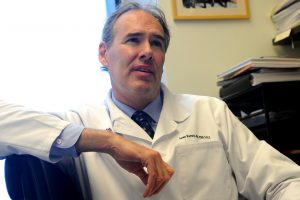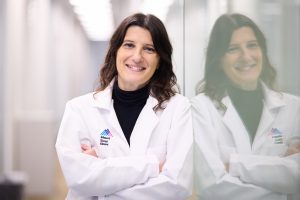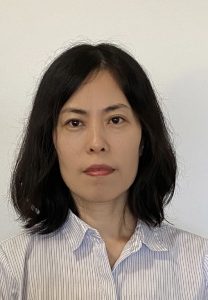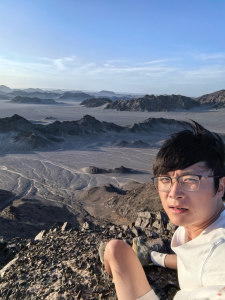
Jason Kovacic, MD PhD, Principal Investigator
Dr. Jason Kovacic is Professor of Medicine, jointly appointed at Mount Sinai Hospital and the Cardiovascular Research Center of Icahn School of Medicine at Mount Sinai. Dr. Kovacic graduated from the University of Melbourne Medical School in 1994, and then undertook residency and cardiology specialty training at St. Vincent’s Hospital in Sydney, Australia. Becoming a Fellow of the Royal Australasian College of Physicians in 2003, Dr. Kovacic then completed a PhD in cardiovascular medicine investigating regenerative vascular therapies for refractory heart disease at the Victor Chang Cardiac Research Institute. In 2007, he relocated to the United States, and to the National Heart, Lung and Blood Institute (NHLBI) at the National Institutes of Health (NIH) in Bethesda, Maryland. At the NIH, Dr. Kovacic spent two years working with Dr. Elizabeth Nabel, former Director of the NHLBI, investigating the vascular healing response and the molecular pathways underlying this process. He then moved to the Cardiovascular Research Institute at The Icahn School of Medicine in New York. In parallel with his practice as a clinical interventional cardiologist at Mount Sinai Heart, Dr. Kovacic leads a highly productive and busy research laboratory.
Dr. Kovacic has enjoyed high-level success at both clinical and basic cardiovascular research. He has over 200 scientific publications, with over 50 of these as lead author. He has served as organizing committee and panel member for the NIH/NHLBI Symposium on Cardiovascular Regenerative Medicine, funding reviewer for numerous agencies including the NIH/NHLBI, and serves on the editorial board for several of the world’s leading cardiovascular journals and textbooks.

Valentina d’Escamard, PhD, Senior Scientist and Laboratory Manager
Valentina is a research scientist with significant experience in cellular and molecular biology research. She joined Kovacic lab in 2013 and she started studying the cellular and molecular basis of fibromuscular dysplasia (FMD), a nonatherosclerotic noninflammatory vascular disease. Given its clinical importance and the unique resource offered by the large number of FMD patients seen by Dr. Jeffrey Olin at Mount Sinai, in Dr. Kovacic laboratory Valentina is studying the etiology of this disease by using patient-specific fibroblasts and in vitro/in vivo disease-modeling techniques. Valentina is a very creative, hard working, dedicated scientist willing to make many important advances toward the understanding and cure of this disease.

Yang Xu, MD PhD, Postdoctoral Fellow
Yang is a current postdoctoral fellow at the Kovacic Lab. He focuses on investigating endothelial-to-mesenchymal transition (EndMT) in cardiovascular and cardiorenal diseases based on mouse and pig models. His research is aiming at exploring the therapeutic value of EndMT. Yang Xu received his Medical Degree from Capital Medical University (China) in 2016 and PhD in Biomedical Sciences degree from Icahn School of Medicine at Mount Sinai in 2024. Yang is a current recipient of NIH TL-1 training grant under the New York Consortium for Interdisciplinary Training in Kidney, Urological, and Hematological Research (KUHR).

Angela Ma, MD PhD, Bioinformatician
Dr. Ma studies the genetics of cardiovascular diseases by applying differing computational approaches. Specific areas of expertise include co-expression modules and regulatory networks, GWAS, eQTLs, genotype phenotype correlations, data science and statistics.

Sabrina Jarrah, Graduate Student
Sabrina is a graduate student at the Icahn School of Medicine at Mount Sinai. She joined Dr. David Goukassian’s lab in January 2025 and is co-mentored by Dr. Kovacic, where her research focuses on investigating the long-term biological effects of cosmic gamma radiation exposure on astronauts. Her work aims to uncover how space radiation contributes to cellular damage, oxidative stress, and chronic disease development by identifying and analyzing relevant biomarkers, with the goal of finding strategies to protect astronaut health during deep-space exploration.

Yifei Du, Graduate Student
Yifei is a graduate student at the Icahn School of Medicine at Mount Sinai. He joined Dr. Kovacic lab in September 2025. Yifei received his Medical Degree from Xiang Ya School of Medicine in Central South University in 2025. His work aims to uncover the endothelial-to-mesenchymal transition (EndMT) during skin wound healing.
